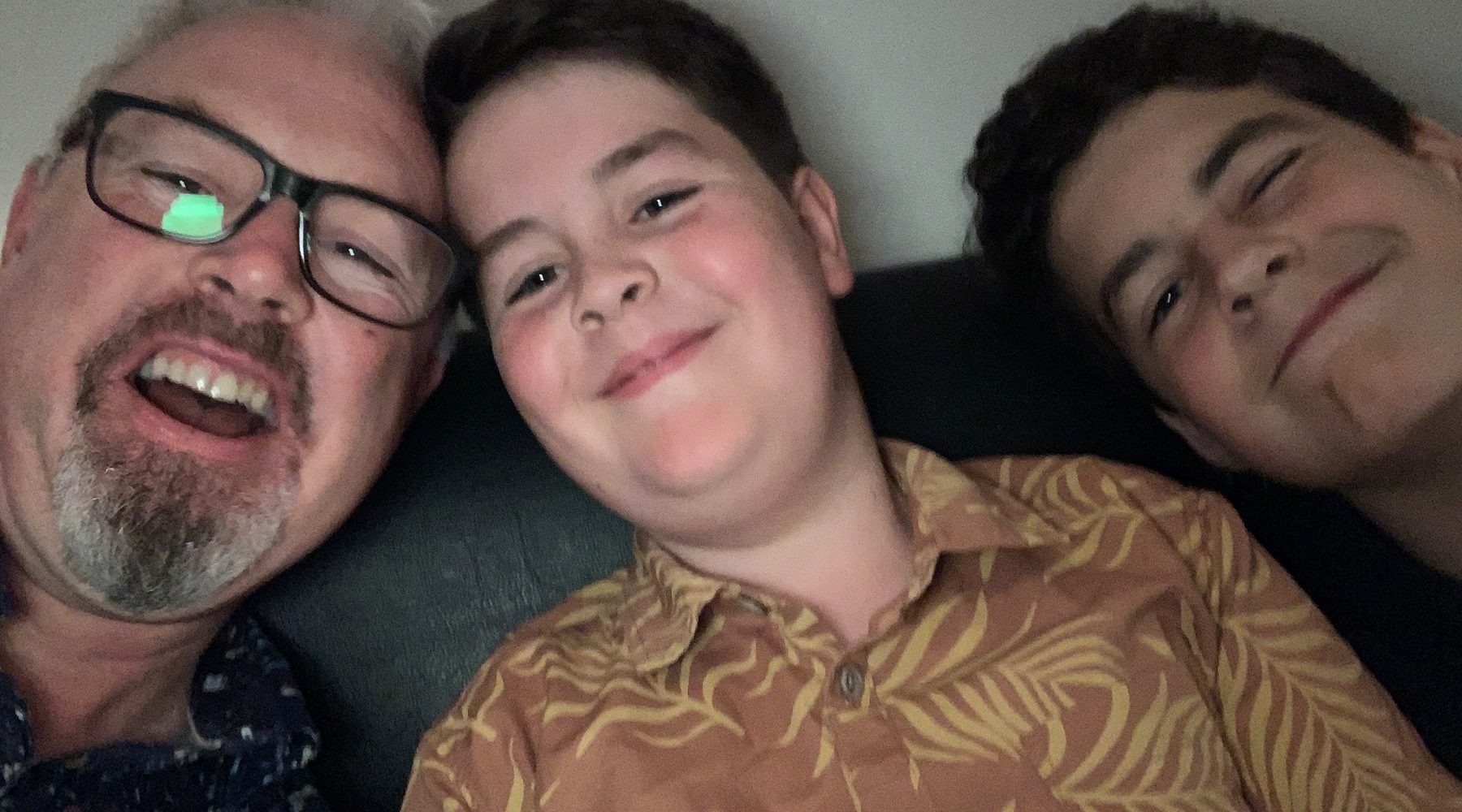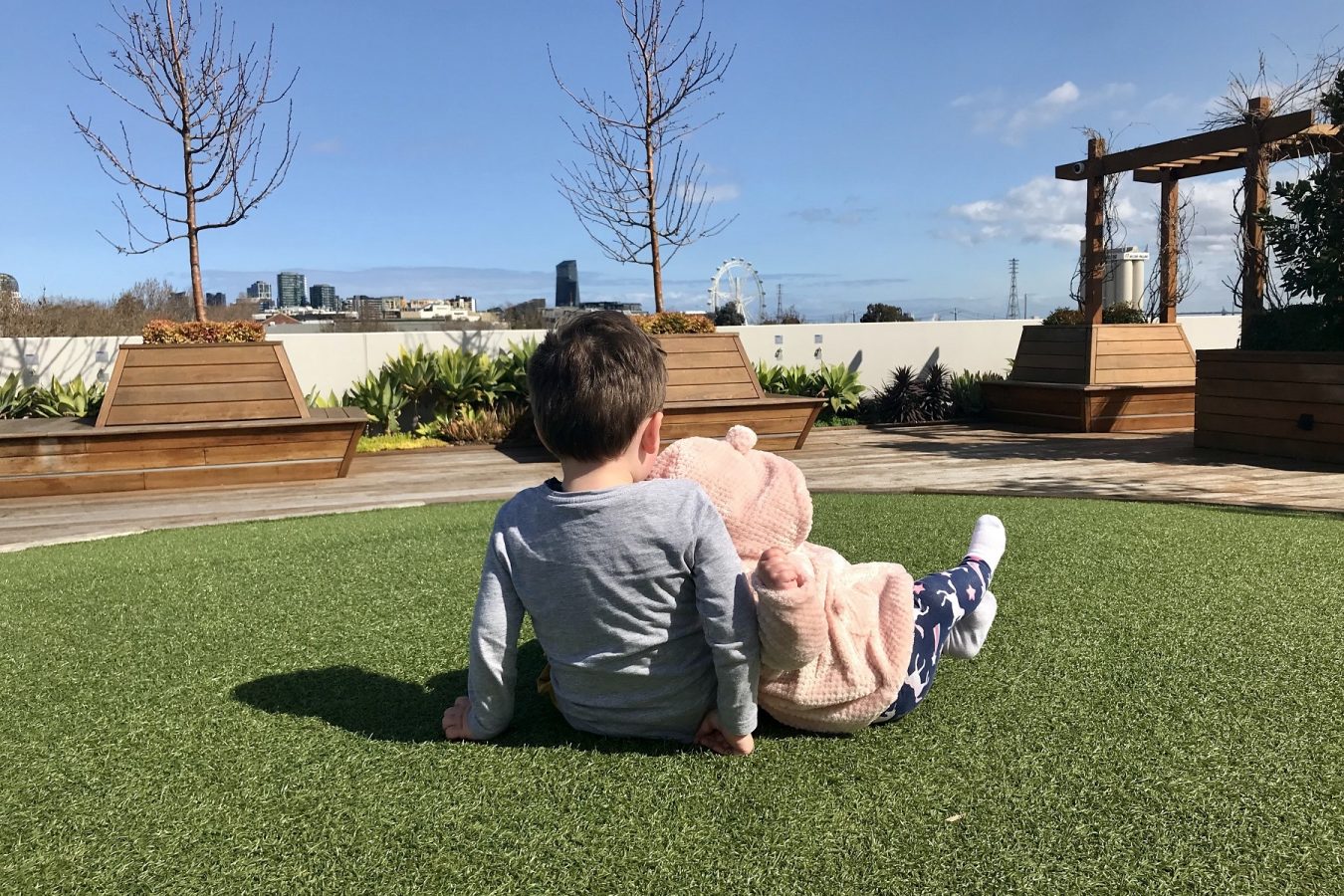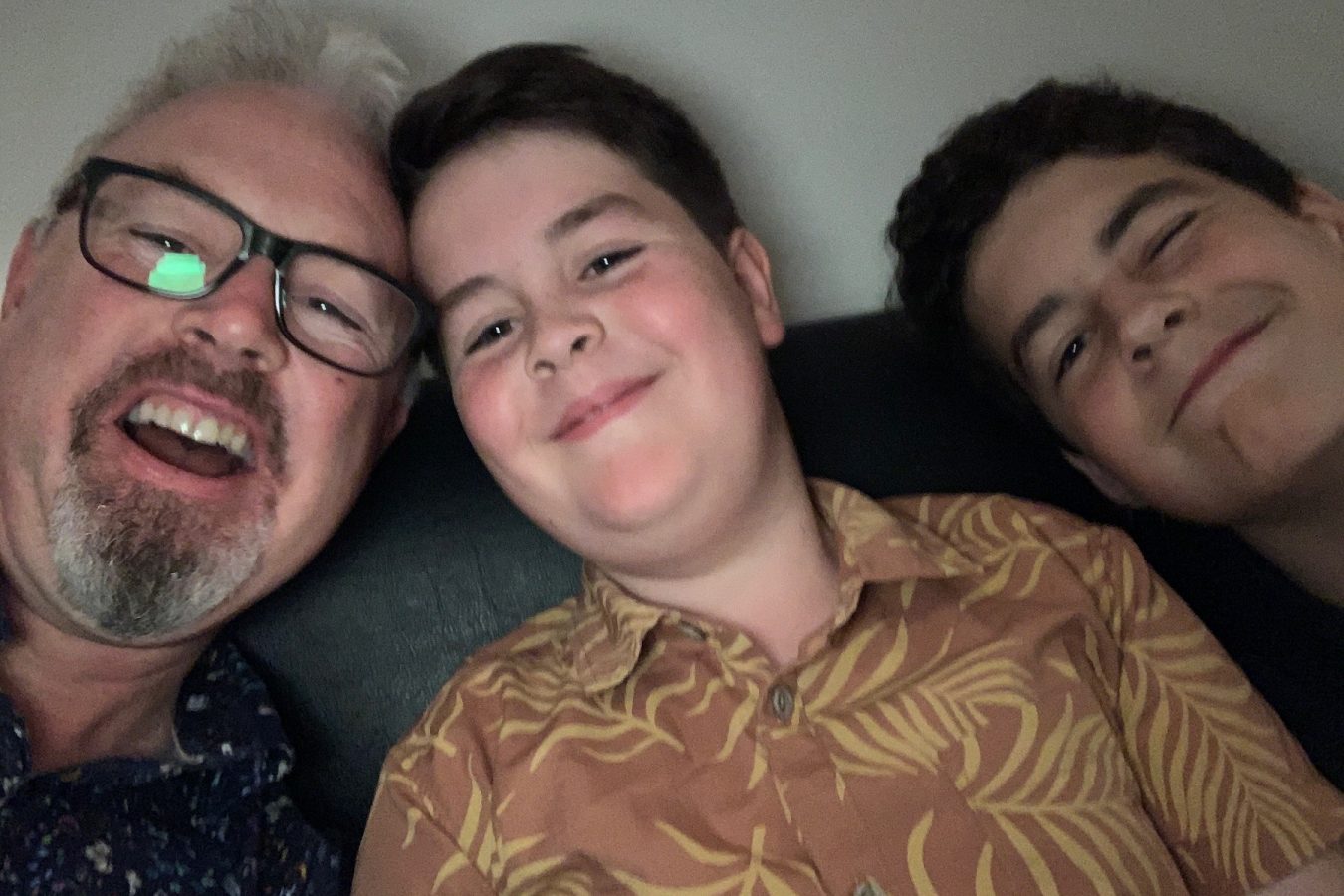
Headstands in stretch and strength lessons on the screen are part of getting connected in the new normal, writes Ruairi O’Duil in his latest wellbeing blog.
‘I don’t want to do it.’
‘Of course you do, it’s dancing. You love dancing.’
‘It’s not dancing, it’s Strength and Stretch. With Miss Sam. And she’s sooo hard.’
‘If you do it, I’ll do it with you. And so will your brother.’
‘No I won’t’
‘Yes. You will.’
So this morning we Zoomed in with 60 other participants of varying degrees of eagerness to connect with Strong and Stretchy Miss Sam from The Dancer’s dance school and each other.
And it was sooo hard.
And we whinged. And we protested. And we tried. And we laughed. And we connected.
And The Dancer was surprised to learn that his elderly Dad could hold a headstand. Not nearly as surprised as his Dad, though.
One of my many worries heading into isolation was how was The Dancer going to survive without dancing. Sure, he was always going to be shaping around the living room and practicing the splits and flipping onto the couch and all of the usual annoying stuff he does, but how were we going to replace the 15 hours a week in class?
Not just the physicality of it. Which, judging by today, is a lot of calorific expenditure, but the being-a-part-of-it-ness of it.
He has been in class with most of his classmates since he was three. That’s countless hours of togetherness and connectedness.
That we took for granted.
Petrea King, of the Quest for Life Foundation, which helps people living with cancer, grief, and other traumas, teaches that a key component of peace and real health is connection – to ourselves, to our world and to those we share our life with. Real health and healing comes from an inner movement towards wholeness and we need those many levels of connection to create that.
Isolating has, by definition, severed many of those connections for our children. Our challenge is how to re-establish them. Not much has changed for The Teenager. He’s spending even more time online, flicking between his various tribes, Minecraft, Fortnite or Call of Duty, Insta and whatever else. His generation is completely comfortable here. I’m sure there are a million memes on Snapgram or Instachat or whatever laughing at us and telling us that they told us so.
The tweenies are the lost generation here. Up until now we’ve restricted internet access for The Dancer but now we have had to relax the boundaries a bit. Belatedly recognising a ‘Learning Opportunity’, I gave him a suggestion and he has spent the day stepping his wee posse through setting up Zoom meetings and, with the technological fluidity and fluency inherent in these digital natives. The place sounds like there is a ‘normal’ playdate happening.
Hashtag the new normal.
You have to wonder at the power of biological imperatives; the need to keep connected, finding pathways around the impositions; and the need to find the new normal, to accept ourselves in this new reality.
And look how good we can be at it. How creative and adaptive we can be. We are all invested in this. We’re all trying to reach forward. How many of us have found new ways to do our jobs? How many of us have had to find new jobs to do? Or new roles to play?
It’s the suburban dance school that ensures its survival by figuring out how to stream its classes into 50 living rooms. It’s the lacrosse club that creates a virtual Wall Ball league, encouraging the whole club to get out and thunk a ball against a wall.
Separately, but together.
It’s the myriad little pivots to keep connections, to stay together. To survive and eventually, hopefully, to thrive, in this new normal.
And we all help because we all need them to do it. Sure, it’s not perfect, but we’ll get better.
We’re going to have plenty of time to figure it out.
Like this post? Please share using the buttons on this page.
About Ruairi O'Duil
Ruairi O’Duil has parked his reflexology business during the pandemic, and is contributing regularly to The Parents Website, offering his insights into family well-being. You can find out more about Ruairi on his Reflexology Melbourne website
Subscribe
